PODER POPULAR COMUNITARIO.
BRONX,NY.DESDE LOS TERRITORIOS,LA COMUNA Y LOS BARRIOS.DESDE EL PODER DE LAS BASES Y LA DEMOCRACIA POPULAR..
https://poderpopularcomunitario.blogspot.com
Nuestramérica. Programa radial de Resumen Latinoamericano: México, Argentina y Ni Una Menos, basta de violencias.
Resumen Latinoamericano 6 de junio de 2024
MEXICO: Claudia Sheinbaum será la primera presidenta de México y la más votada en décadas/ ARGENTINA: el gobierno comienza a tener serios problemas de corrupción. Carpa contra el hambre frente al Congreso. Se prepara una concentración para frenar la ley Bases/ FEMINISMOS: Ni Una Menos, este 3 de junio miles en el país gritándole no a las violencias machistas, sociales, políticas, económicas y patriarcales.
Home / América del Norte / Estados Unidos / Estados Unidos. Manifestantes pro Palestina asaltan consulado israelí en San FranciscoEstados Unidos. Manifestantes pro Palestina asaltan consulado israelí en San Francisco.

Resumen Latinoamericano, 04 de junio de 2024.
La policía arrestó a varios participantes en el incidente por gritar consignas a favor del alto al fuego y el fin del genocidio en la Franja de Gaza.
Unas 70 personas irrumpieron este lunes en el vestíbulo del consulado de “Israel” en San Francisco, estado de California, Estados Unidos, para protestar por la actual agresión sionista contra la Franja de Gaza, según informaron medios locales.
De acuerdo con el periódico San Francisco Chronicle, funcionarios de la policía citadina arrestaron a varios manifestantes por corear consignas a favor de Palestina y del fin del financiamiento estadounidense a la guerra genocida israelí
Además levantaron pancartas con el mensaje “El antisionismo no es antisemitismo”, y demandaron el cese del apoyo político y militar de la Casa Blanca a las maniobras sionistas.
Mientras tanto, continúan en todo el orbe las manifestaciones en apoyo a Gaza, para exigir el fin de la actual agresión genocida, iniciada el 7 de octubre de 2023, y en respaldo a las protestas desatadas por estudiantes y profesores en decenas de universidades en EEUU y Europa.
Fuente: Al Mayadeen
You must be logged in to post a comment Login
|
Join Us In Washington D.C. June 8th.June 8 marks eight months of US-Israeli genocide of the Palestinian people, and marks the 54th anniversary of the occupation of Gaza. A month ago, Biden said that the invasion of Rafah was a red line. But now, the invasion of Rafah has continued for weeks, has expanded to the entire Gaza Strip, and Biden’s red line is nowhere to be seen. Biden can’t draw the line, but we can. On Saturday, June 8, we will come together from across the country and surround the White House! Wearing red, and raising our demands high, we will show the world that we are the red line. We demand an immediate ceasefire, an immediate end to the siege on Gaza, the freedom of all Palestinian prisoners, and an end to the occupation of Palestine. STOP THE GENOCIDE! FREE PALESTINE! 🗓️ Saturday, June 8 Get on the Bus!People's Forum alongside the ANSWER Coalition and the Palestinian Youth Movement are organizing buses to Washington, D.C., leaving from New York City. See below for ticket information. | |
| |
|

Héctor Llaitul inicia huelga de hambre por injusta condena de 23 años de cárcel en juicio viciado.

En primer lugar, exige la nulidad del juicio que lo condenó recientemente a 23 años bajo la Ley de Seguridad Interior del Estado.
A las comunidades en resistencia y a la opinión pública en general, comunicamos que, el día de hoy, lunes 03 de junio, el werken de la CAM, Héctor Llaitul Carrillanca ha decidido iniciar una huelga de hambre, siendo estas sus demandas:
– KIÑE: En primer lugar, exige la nulidad del juicio que lo condenó recientemente a 23 años bajo la Ley de Seguridad Interior del Estado.
En relación a este mismo punto, se exige que el recurso sea visto por la Corte Suprema, debido a que es el máximo tribunal y es quien debiera pronunciarse ante esta injusta condena por dos razones:
1) Por la aplicación en «democracia» de la Ley de Seguridad Interior del Estado a un dirigente del pueblo nación mapuche.
2) Por la utilización de testigos protegidos para el logro de una larga e injusta condena.
– EPU: POR CODICIONES CARCELARIAS DIGNAS Y DE RESPETO A LOS DERECHOS HUMANOS DE LOS PRESOS POLÍTICOS MAPUCHES EN EL CCP BIOBÍO.
– KÜLA: POR LA LIBERTAD DE SUS HIJOS ERNESTO LLAITUL Y PELENTARO LLAITUL, Y DE TODOS LOS PRESOS POLÍTICOS MAPUCHES DE LA CAM.
AMULEPE TAIÑ WEICHAN!
WEUWAIÑ – MARICHIWEU!
Coordinadora Arauco Malleco
Aportes para el Balance de la Situación del Perú
| |||
Por: Julian Lacacta / http://lacacta.wordpress.com
I
A un año del inicio de la "dictadura" de Dina Boluarte, es necesario
resaltar algunas consideraciones que marcaron el comienzo del rescate
por parte de la ultraderecha a favor del modelo neoliberal respaldado
por la Constitución de 1993, construida a imagen y semejanza del
fujimorismo. La corrupción está institucionalizada y es defendida por
diversos sectores que hoy controlan el poder ejecutivo, legislativo y
judicial, acorralando al campo popular. Este sector fue traicionado por
la llamada "izquierda institucional", que, en alianzas con la
ultraderecha fascista, es culpable del retroceso en la construcción del
poder popular en el Perú.
II
El problema en el Perú radica en la existencia de una derecha que se ha
consolidado desde los años noventa, personificada actualmente en el
fujimorismo, una posición que, en estas últimas dos décadas, no busca
controlar el Estado para construir un país capitalista-neoliberal ni
mucho menos uno desarrollado para enfrentar un mundo globalizado. Su
objetivo es apropiarse del Estado, y su única plataforma desde el año
2000 en adelante ha sido liberar al padre fujimorista y dignificarlo
como un mandatario triunfador. Es por eso que la hija, Keiko, junto con
Montesinos y altos mandos militares, continúan movilizando todos sus
vínculos que aún manejan desde las sombras para oponerse a cualquier
propuesta o sector que busque un cambio, una nueva constitución y una
transformación del Estado.
La corrupción es un factor relevante en la vida política de la
ultraderecha liderada por los fujimoristas, y se dedican a defenderla a
capa y espada. No es casualidad que los últimos seis mandatarios estén
vinculados e investigados por sobornos, lavado de activos, entre otros
delitos, que no solo están presentes en el poder actual, sino que
también alcanzan a diversas instituciones del Estado. Según la
Procuraduría Anticorrupción, existen más de 5,860 casos de corrupción, y
en todo el país hay más de 52,000 casos por parte de funcionarios. Según
datos de la Contraloría General en el año 2022, Perú perdió más de 6,500
millones de dólares debido a la corrupción de las autoridades.
La izquierda tradicional, institucional y la izquierda parlamentaria han
abandonado cualquier intento de cambio al integrarse en el sistema y
distanciarse del campo popular. En las protestas del sur y centro del
país, ninguno de estos sectores se ha vinculado a las marchas; por el
contrario, se han dedicado a negociar y desviar los objetivos que tenía
el campo popular para sus fines electorales, autodenominados defensores
del pueblo han optado por seguir y defender el lenguaje de la
ultraderecha, utilizándolo para deslegitimar a los manifestantes,
llegando incluso a mencionar que detrás de las protestas del sur se
encuentran terroristas y senderistas. En sus documentos de análisis,
acusan a las organizaciones naturales del pueblo de algo que no son.
III
La investigación iniciada por los fiscales anticorrupción en contra de
la fiscal general de Perú, la máxima representante del Ministerio
Público, Patricia Benavides, y sus asesores por presuntamente integrar
una organización criminal que buscaba favorecer ilícitamente en
decisiones congresales, es un ejemplo de cómo se maneja el poder y de
cómo se pueden solucionar dichos actos contraatacando con una denuncia
constitucional por homicidio calificado contra la "pseudo" presidenta
Dina Boluarte. Los medios de comunicación juegan un papel importante en
el poder y su función es generar o crear una imagen del país y de los
actores que no corresponde a la realidad.
La política no es sinónimo de corrupción. En estas últimas décadas, se
ha profundizado esa forma de hacer política. La derecha bruta y achorada
ha institucionalizado esa manera de llevar a cabo la política y de
saquear al Estado, utilizando el amiguismo, compadrazgo y favoritismo
hacia familiares o amigos para obtener beneficios.
Es necesario la reconstrucción de una nueva izquierda revolucionaria que
persista en su lucha por construir una nueva sociedad más justa y en
paz. En esta coyuntura, es importante que esté más cerca del pueblo y,
si es posible, que lidere las luchas para que todos los políticos
corruptos se vayan.
______________________________
Lista de correo Katari -- katari@lists.espiv.net
Para desuscribirse envíe un email a katari-leave@lists.espiv.net
Estética del relato político X Fernando Buen Abad.
Todos sufrimos las emboscadas estéticas del discurso político dominante. Su arsenal, sublime fallido, embriagado con estereotipos ociosos....,MENSAJE DE VICTOR TORO RAMIREZ.
Video: 50 AÑOr.- S
Movement of La Peña del Bronx.
http://www.ImmigrantSolidarity.org
Entrevista a Enric Tello, catedrático de la Facultad de Economía y Empresa.
«Crecer a toda costa nos lleva al peor decrecimiento».
| Economía....,
https://poderpopularcomunitario.blogspot.com

|
|
|
|
|
|
|
|
|
|
|
|
|
|
|
|
|
|
|
|
Pensamiento Crítico. Palestina: La derrota de junio de 1967 a la luz del panorama actual.

Por Mowaffaq Mahadin. Resumen Medio Oriente, 03 de junio de 2024.
Ante las revisiones negativas y nihilistas en amplios círculos culturales y políticos que acompañaron la derrota de junio de 1967, la experiencia de resistencia, que comenzó en julio de 2006 y terminó con el Diluvio de Al-Aqsa, comenzó a producir un estado de revisión derivado de la realidad.
La lectura de la derrota de junio de 1967 tiene dos perspectivas: La primera, intentar romper con los modelos ideológicos comunes de derrota, y la segunda, llamar la atención sobre el secreto de este repentino y frenético interés por la derrota, mientras el mito del “ejército invencible” fracasa en las arenas de Gaza ante la legendaria firmeza de los héroes del Diluvio de Al-Aqsa.
En cuanto a la primera perspectiva, es importante revisar las circunstancias de la derrota de junio y estudiar sus causas y lecciones para superarla y establecer un importante renacimiento nacional a nivel de la nación.
Sobre esta cuestión fueron realizados amplios estudios, variaron en su lectura, razonamiento y conclusiones, desde centrarse en el factor externo hasta los factores internos, ya fueran en forma de revisiones de clase, las cuales responsabilizaron a la pequeña burguesía y su discurso conciliador por la derrota, o tomaron la forma de revisiones democráticas sobre la ausencia de pluralismo político y partidista.
Hay quienes consideran la derrota de junio una extensión de la derrota de 1948 y resultado de la disolución de la unión de Siria con Egipto en 1961, y del fracaso del difunto presidente Jamal Abdul Nasser a la hora de defender la experiencia de la unidad, y de su gira de la consigna de unidad de propósito a la consigna de unidad de filas.
Las lecturas e interpretaciones sobre las repercusiones de la derrota también variaron desde el llamado a considerar la resistencia popular como la respuesta natural a la derrota del Estado, hasta la exhortación a trabajar a través de una nueva forma de Estado, la cual para algunos tomó el carácter de un estado democrático, mientras para otros adoptó otras formas, desde el islam y el socialismo marxista.
Al final, las múltiples revisiones sobre la derrota de junio fueron convertidas en modelos ideológicos y políticos en competencia, y tuvieron escuelas, partidarios, opositores, y conservadores.
Es cierto que el régimen nasserista está más cerca de la fórmula pequeñoburguesa, y fue un tipo de dictadura portátil y popularmente aceptada, frente a los chantajes imperialistas, pero vincular esta naturaleza del régimen a la derrota no es inevitable.
Hay pequeñas burguesías que lideraron importantes batallas nacionales exitosas, y hay dictaduras nacionales que lograron enfrentar la agresión externa y construir un Estado de resistencia histórica.
Ejemplos de estos dos casos incluyen a Mahathir Mohammad en Malasia y Fidel Castro en Cuba. De hecho, el peor caso de los restos de Nasiriyah, que es el caso de Sadat, logró una victoria militar en la Guerra de Octubre, desperdiciada por maniobras políticas.
La cuestión, entonces, no son los modelos ideológicos en conflicto, sino el requerimiento de una postura objetiva sin coerciones ni intervenciones prefabricadas.
Creo que la derrota no era inevitable a la luz de las descripciones predominantes del régimen de Nasser como una dictadura de la burguesía nacional, y este régimen podría haber logrado mayores logros en la Guerra de Octubre si Abdul Nasser hubiera seguido vivo, entonces sabemos que el plan de cruce (Granito 1 y Granito 2) tuvo lugar durante la era de Abdul Nasser, lo que significa que la derrota de junio, en su aspecto principal, fue una derrota militar, servida por el carácter social de la pequeña burguesía más que una razón decisiva para ella.
Por otro lado, los documentos publicados después de junio y las experiencias similares ubican esta derrota en una situación similar a la sufrida por Mohammad Ali y su hijo Ibrahim Bajá en 1840.
No es casualidad que el ascenso de Abdul Nasser, al igual que el de Mohammad Ali, transcurriera apenas diez años antes de la agresión contra ellos, y que su proyecto de unificar Egipto con el Levante fuera la causa directa de la amplia alianza colonial contra ellos.
Asimismo, la magnitud de la presión internacional, comparada con su corta experiencia, explica en parte la magnitud de la derrota militar, que careció de un contraataque efectivo.
Si el Medio Oriente árabe sigue siendo la región más peligrosa que rodea el corazón del mundo en movimiento, según las estrategias geopolíticas, entonces el peligro de la unión de Egipto y Siria a los intereses europeos y capitalistas, durante las eras de Mohammad Ali y Abdul Nasser, era incomparablemente mayor que el actual y era necesario destruir cualquier fuerza que intentara controlar este arco tierra-mar, especialmente después de la construcción del Canal de Suez y el descubrimiento de petróleo.
Si el Estado del enemigo judío fue el que apoyó esta agresión, entonces se le proporcionó una fuerza poderosa servida por la naturaleza burocrática y la vacilación de Abdel Nasser a la hora de lanzar el primer ataque.
De hecho, la estrategia de Abdul Nasser hacia este enemigo es la principal responsable de la derrota, ya que Abdul Nasser no abandonó la filosofía del borde del abismo sin prepararse para un amplio choque militar que coincide con los logros económicos, sociales y científicos y los grandes logros nacionales, papel que jugó Abdul Nasser a nivel de los movimientos de liberación.
En ausencia de un Estado nacional, como el nasserista, tal vez la experiencia de resistencia actual, con todas sus expresiones y extensiones, constituya una palanca histórica para el avance de la nación, a través de su choque directo con la alianza imperialista-sionista, y la restauración del programa del movimiento de liberación que el Estado árabe en general no logró llevar a cabo ni traducir.
La segunda perspectiva es la notable cantidad de atención de los medios de comunicación a punto del aniversario de la derrota en más de una estación, canal satelital y periódico árabe de amplia circulación. Este interés no busca revisar las circunstancias de la derrota y sus lecciones, sino parece ser un medio dirigido a comercializar la conciencia de la derrota y apoyarla, y lamentar la capacidad de la nación para levantarse nuevamente.
A estos medios les acompañan climas completamente diferentes a los de junio de 1967 y 1982. El junio actual está asistiendo a un desarrollo sin precedentes en la capacidad de la resistencia, de su eje y de sus centros populares y oficiales en todos los campos de confrontación, y lo más importante es que el Eje tome la iniciativa en el campo militar y exponga al enemigo, que compensa sus fracasos en el campo ante los combatientes con la masacre de civiles bajo la cobertura del imperialismo estadounidense-europeo.
Ante las revisiones negativas y nihilistas en amplios círculos culturales y políticos que acompañaron la derrota de junio de 1967, la experiencia de resistencia, que comenzó en julio de 2006 y terminó con el Diluvio de Al-Aqsa, comenzó a producir un estado de revisión derivado de la realidad y que chocaba con las narrativas imperialistas y sionistas, y calificado para establecer un nuevo discurso de resistencia renacentista que es diferente de la cultura de la derrota, y las ilusiones del liberalismo y las consignas de la Primavera Árabe programadas en las cocinas de la inteligencia occidental.
Fuente: Al Mayadeen
You must be logged in to post a comment Login
 |
Visita: www.elindoamericano.cl |
China frente a Occidente. China se esfuerza por cultivar las industrias estratégicas emergentes y la innovación tecnológica, las "nuevas fuerzas productivas de calidad". Instalaciones científicas a gran escala, incubadoras de alta calidad, robots, automóviles, biomedicina han penetrado el proceso de producción en Shanghai, haciendo la vida de las personas mejor. Una fábrica con más de 400 robots entrega un nuevo coche aproximadamente cada 70 segundos. Xinhua China reportó alrededor de 619,58 millones de viajes aéreos el año 2023, un aumento del 146,1 por ciento interanual. Xinhua -China llega a la cara oculta de la Luna. Una sonda no tripulada aterrizó en la superficie lunar para una misión histórica. RT -Los ucranianos no tendrán pensiones adecuadas – viceministro. Kiev ha instado a los ciudadanos a planificar su jubilación por su cuenta y trabajar el mayor tiempo posible debido a la crisis demográfica. RT -Netanyahu dice que alto al fuego en Gaza sería temporal. DW -Toyota, Honda, Suzuki, Mazda y Yamaha, manipularon las pruebas de certificación de algunos de sus modelos en Japón, anunció este lunes el Ministerio de Transporte. RFI -Triunfos en la presidencia, la capital y el Congreso: Morena arrasa en las elecciones en México. Claudia Sheinbaum en la presidencia, de acuerdo con el conteo rápido obtuvo cerca del 60% de los votos, Xóchitl Gálvez el 28,6%. RT -EE.UU. realiza sus mayores ejercicios militares conjuntos en África. Más de 8.100 militares de 27 países participaron en las maniobras African Lion. RT -El Banco de Reserva de la India ha trasladado más de 100 toneladas de oro ubicadas en el Reino Unido a sus bóvedas nacionales. RT -Autoridades sanitarias informan de 60 muertos y 220 heridos en Gaza. Sputnik -El periodista estadounidense Tucker Carlson advirtió que las tierras cultivables de Ucrania están siendo vendidas a inversionistas extranjeros. Sputnik -Chile respaldará a Sudáfrica en caso contra Israel ante la Corte Internacional de Justicia. DW -Valor de comercio internacional de bienes y servicios de China aumenta 13% en abril. Xinhua -La industria manufacturera de productos electrónicos de China registró un sólido desempeño en los primeros cuatro meses impulsada por un aumento constante en la producción y la recuperación del mercado nacional y la demanda global. Xinhua -Una serie de países han otorgado permiso a Kiev para que use sus armas para atacar objetivos dentro del territorio ruso. Tal decisión fue tomada pese a las advertencias de Moscú de que tales actos representarían una escalada del conflicto y conllevarían una respuesta por parte de Rusia. RT -Israel, y la declaración lo indica al decir que "la guerra no terminará" hasta que también se logre "la eliminación de las capacidades militares y gubernamentales de Hamás", ni se sabe si difiere de la que Biden esbozó en su discurso. RT -Hamás afirmó este viernes que la nueva propuesta israelí para un cese el fuego en Gaza es "positiva" RFI -El primer ministro israelí Benjamín Netanyahu insistió este sábado (01.06.2024) en la "destrucción" del movimiento terrorista palestino Hamás como parte esencial del plan israelí, presentado el viernes por el presidente estadounidense Joe Biden, para poner fin al conflicto en Gaza. "Las condiciones de Israel para poner fin a la guerra no han cambiado: la destrucción de las capacidades militares y de gobierno de Hamás, la liberación de todos los rehenes y la garantía de que Gaza ya no supone una amenaza para Israel", afirmó en un comunicado. DW -El Congreso Nacional Africano, partido de Nelson Mandela, perdió la mayoría absoluta que tenía desde hace tres décadas, y deberá buscar alianzas para mantenerse en el poder. RFI -Ucrania perdió más de 35.000 soldados en mayo – Moscú. RT -Biden dijo que el plan propuesto por Israel tiene tres fases: I Alto al fuego por 6 semanas, la retirada de fuerzas israelíes de los principales centros de población, liberación de mujeres, heridos y ancianos rehenes de Hamás y de cientos de palestinos. II Liberar a los rehenes vivos, incluidos los soldados, las FDI se retiran del enclave palestino, continúa el alto el fuego. III Devolución de cadáveres, inicio de la reconstrucción de Gaza, nuevos acuerdos de la normalización de las relaciones entre Israel y sus países vecinos, incluida Arabia Saudita. RT -Hamás acogió con satisfacción la propuesta israelí de un alto el fuego en Gaza anunciada previamente por el presidente de EE.UU., Joe Biden, en momentos en que Tel Aviv es sometido a una fuerte presión internacional por el mortífero ataque que realizaron sus tropas en un campamento de refugiados de Rafah. Sputnik -El presidente boliviano, Luis Arce, denunció que "fuerzas oscuras" internas y externas conspiran mediante "golpes suaves" con el objetivo de controlar recursos estratégicos como el litio y las tierras raras. Sputnik -Rusia acusó a la OTAN y a Estados Unidos de "provocar un nuevo nivel de tensión" después de que Estados Unidos y Alemania se convirtieran en los últimos aliados en permitir que el ejército de Ucrania usara armas suministradas por Occidente para atacar objetivos dentro de Rusia. BBC -Eslovenia decide reconocer al Estado de Palestina. Hispantv -España descarta autorizar el uso de sus armas donadas a Ucrania contra Rusia. Sputnik -La economía india crece un 8,2% en el año fiscal concluido el 31 de marzo. RFI -La actividad de las fábricas de China cayó en mayo con respecto a una alta base comparativa, mientras que la correspondiente a los servicios se mantuvo estable, según datos oficiales revelados hoy viernes. El índice de gerentes de compras (IGC) para el sector manufacturero del país se situó en 49,5 en mayo, una cifra más baja en relación con la lectura de 50,4 registrada en abril. Xinhua -Un grupo de investigadores de instituciones científicas chinas logró curar a una persona que sufría de diabetes mediante un innovador tratamiento basado en la implantación de nuevas células que sustituyen aquellas dañadas por la enfermedad, informó este lunes South China Morning Post. RT -Rusia "responderá de forma asimétrica y sensible" a EE.UU. por su permiso de atacar su territorio. Sputnik -Berlín autoriza a Kiev uso de armas contra objetivos rusos. DW -NYT: El Pentágono le dará directrices a Ucrania sobre qué objetivos podrá atacar en Rusia. Poco después de la publicación del artículo, el periódico estadounidense borró el párrafo que contenía esta información. RT |
Visita: www.elindoamericano.cl
|
| |
.La CIA en tareas . El ministro de Defensa de Venezuela denuncia un nuevo plan desestabilizador desde Colombia y Estados Unidos. El día anterior Mario Iván Carratú Molina, vicealmirante retirado prófugo, alertó que “se están contactando militares en Estados Unidos para organizar un ‘movimiento libertario" con la participación de un exministro. Hispantv -El líder del grupo de pandillas G9, Jimmy Chérizier, conocido como 'Barbecue', pide a la comunidad internacional que presente un "plan detallado" para Haití como requisito para sentarse a hablar y considerar deponer las armas en el país caribeño, advierte que si se despliegan miembros de la fuerza internacional liderada por Kenia serán considerados como "invasores". RT -Un ataque israelí destruyó el edificio del consulado iraní en la capital de Siria, Damasco, matando a varias personas, informan los medios estatales sirios. BBC -Rusia invita a los talibanes al foro. Se espera que Afganistán participe en el evento anual dedicado a la cooperación económica entre Moscú y el mundo islámico. RT -Irán alertó a Rusia de una inminente “operación terrorista” importante días antes del mortal ataque al Ayuntamiento de Crocus, informó Reuters citando tres fuentes familiarizadas con el asunto. El portavoz del Kremlin, sin embargo, dijo que no estaba al tanto de tal advertencia. RT -El ejército de Israel dice que se retiró del hospital de al-Shifa en la ciudad de Gaza después de una incursión de dos semanas que dejó en ruinas la mayor parte del importante complejo médico. El Ministerio de Salud de Gaza, dirigido por Hamas, dijo que se habían encontrado docenas de cadáveres y los lugareños dijeron que las áreas cercanas fueron arrasadas. BBC -Cuatro terroristas detenidos en Daguestán entregaron armas y dinero para el atentado en el Crocus City Hall. RT -La UE ya no puede esperar que EE.UU. la defienda: fabricante de armas. Si ocurre un conflicto, Washington se concentrará en Asia y los miembros europeos de la OTAN estarán “totalmente solos”, advirtió el director ejecutivo de Rheinmetall. RT -Erdogan de Türkiye admite la pérdida electoral del partido gobernante. RT -Dirigible tripulado desarrollado por China realiza primer vuelo entre destinos, de una sola cabina, tiene una capacidad de diez personas, un alcance de 700 kilómetros y una autonomía de diez horas. Xinhua -Hamas: Informes de los medios israelíes indican que el ejército había designado ciertas áreas de la Franja de Gaza como ‘áreas de exterminio’ donde las fuerzas israelíes están autorizadas a disparar y matar a cualquier persona, incluso si está desarmada. Hispantv -Al-Quds (Jerusalén) escenario de la mayor manifestación contra el gabinete israelí desde octubre, con más de 100.000 personas clamando dimisión de Netanyahu. Hispantv -Israel dice que 600 de sus soldados han muerto desde octubre. DW -Moscú ha exigido que Ucrania entregue a todos los sospechosos de terrorismo en el país. Anunció que había contactado oficialmente a Kiev con las demandas bajo la Convención Internacional para la Represión de los Atentados Terroristas y la Convención Internacional para la Represión de la Financiación del Terrorismo de la ONU. Exige el “arresto inmediato y la extradición” de todos los sospechosos que ha identificado y vinculado con el reciente ataque terrorista contra Rusia. Recordó los asesinatos de los periodistas Daria Dúguina y Vladlén Tatarski. RT, Sputnik -Rusia pide el arresto del jefe del Servicio de Seguridad ucraniano (SBU), entre otros. Emol -Las 5 economías de crecimiento más rápido del G20 en el 2023 fueron India 7,3%, China 5,2%, Indonesia 5,1%, Turquía 4,5%, Rusia 3,9. Sputnik -El gobierno de México había anunciado que el glifosato herbicida potencialmente cancerígeno se prohibiría a partir del 1ro abril, pero se seguirá usando según las autoridades porque es necesario para la producción agrícola. RFI -Siria: Siete muertos después de que un coche bomba arrasara un mercado en Azaz. BBC -Países Bajos desplegará misiles Patriot cerca de la frontera rusa. RT -“Quiero decirles a los atletas rusos y bielorrusos que no son bienvenidos en París”, expresó la alcaldesa de París. RT -Israel ataca con drones en el sur de Siria. Hispantv -Rusia realiza pruebas de aviones de producción nacional que reemplazarán a los Airbus y Boeing en el país. Las restricciones occidentales aceleran la sustitución de importaciones y de investigación. Sputnik -La presidenta de Perú, Dina Boluarte, aseguró que permanecerá en el cargo hasta 2026 pese al escándalo de los relojes. Las autoridades allanaron la vivienda de la presidenta en investigación por presunto enriquecimiento ilícito en el uso de relojes Rolex que no habría declarado. Sputnik, RFI -Decreto convoca a 150.000 reclutas rusos, aumenta la edad de reclutamiento y los hombres de 18 a 30 años deberán hacer servicio militar obligatorio. Establece liberar a los soldados, marineros, sargentos y cabos que ya concluyeron su servicio. DW -Cuba recibe más de 90.000 toneladas de petróleo de Rusia. DW -Israel está considerando establecer una fuerza militar multinacional en Gaza. RT -Desde el inicio de la guerra entre Israel y Hamás la Franja de Gaza ha recibido un total de 363.775 toneladas de ayuda humanitaria enviadas en 19.448 camiones, Ministerio de Defensa de Israel. RT -Sube a 52 el número de muertos en ataques israelíes en Siria, el mayor número de bajas para el ejército sirio desde el comienzo del conflicto Israel- Hamás. DW -El expresidente de Brasil, Jair Bolsonaro, solicitó a las autoridades que le autoricen viajar a Israel a una invitación de Netanyahu. Juez de Supremo rechazó devolverle el pasaporte. Sputnik, Emol -Estados Unidos ha autorizado el envío a Israel de aviones de combate y de bombas por valor de "miles de millones de dólares", informó The Washington Post, que cita fuentes oficiales familiarizadas con el asunto. RT -Los principales sospechosos del ataque terrorista en Moscú han testificado que sus órdenes vinieron de un hombre misterioso que les dijo que huyeran a Ucrania, Comité de Investigación. RT -Los estadounidenses más ricos se hicieron aún más ricos el año pasado y ahora poseen 44,6 billones de dólares en activos combinados. RT -"Rusia es muy importante para proteger a los palestinos": alto funcionario de Hamás. RT -Estados Unidos ha ofrecido financiación a sus socios en Medio Oriente para una fuerza de mantenimiento de la paz en Gaza, que vigilaría el enclave palestino una vez que terminen las hostilidades con Israel, Político. RT -La ONU emite una advertencia sobre el creciente racismo británico. Los romaníes y los afrodescendientes se enfrentan a una “discriminación sistémica” a manos del sistema de justicia del Reino Unido. RT -El primer ministro chino promete esfuerzos para promover la renovación de equipos e intercambio de bienes de consumo. La campaña debe estar orientada al mercado y dirigida por el Gobierno, y debe incluir reciclaje de bienes usados y elevación de los estándares. Xinhua -Detienen en Tayikistán a 9 personas sospechosas de tener vínculos con atacantes del Crocus City Hall. Sputnik -Al menos 42 soldados sirios y combatientes del movimiento libanés Hezbolá murieron en un ataque israelí en la región siria de Alepo. RFI -Alarmantes lemas “Rusia para los rusos” – Putin. Actualmente viven en el país unos 190 grupos étnicos que representan todas las confesiones religiosas, señaló el presidente. RT -El 17 de marzo acontecieron protestas en varias provincias, entre ellas, Santiago de Cuba, Granma y Matanzas, las más multitudinarias desde las sucedidas los 11 y 12 de julio de 2021. Sputnik -Lula da Silva, afirmó este jueves (28.03.2024) que los impedimentos para la inscripción de la candidatura opositora de Corina Yoris en Venezuela es algo "grave" y no tiene explicación "política ni jurídica". DW -El gobierno estadounidense demanda a Apple acusada de prácticas monopólicas en su negocio de iPhone. RT -No hay una manera rápida de alejarse del combustible nuclear ruso, mientras que cortar los lazos demasiado pronto dañaría los mercados energéticos globales, Rafael Grossi, jefe de la Agencia Internacional de Energía Atómica (OIEA). RT -Delegada de Cultura de Madrid: "España no tuvo colonias (en América Latina)… no saqueó sus países para traer aquí las joyas que se encontraron, sino que se quedaron allí". RT -Alto representante de la Unión Europea para Asuntos Exteriores y Política de Seguridad, Josep Borrell en una entrevista a CNN: "No se trata solo de generosidad. No es una cuestión de apoyar a Ucrania porque amemos al pueblo ucraniano; es por nuestro propio interés". RT -Se echaron a perder 1.000 millones de comidas por día en 2022, denuncia la ONU. RFI -China envió más de un millón de botellas de agua de glaciares tibetanos a Maldivas, un país insular cada vez más dependiente de las plantas desalinizadoras a causa del cambio climático. RFI -Científicos chinos desarrollaron un misil tierra-aire capaz de alcanzar objetivos a una distancia de más de 2.000 kilómetros, informó el diario 'South China Morning Post'. Sputnik -La salida de Rusia cuesta a las empresas occidentales más de 100.000 millones de dólares – Reuters. RT -Rusia ha enviado un barco militar para participar en ejercicios conjuntos con Eritrea por primera vez en los 30 años de relaciones diplomáticas. RT |
Haití. 220 años después de la Revolución haitiana: el laberinto de un modelo neocolonial moderno....,

Por Yohan Nezcarv, desde Chile, Resumen Latinoamericano, 16 de marzo de 2024.
Entrevista con un militante internacionalista. Lautaro Rivara (1991) es un militante de la izquierda argentina, profesor, sociólogo, escritor, poeta, analista, periodista e investigador. Es doctor en Historia por la Universidad de La Plata, Argentina (UNLP) y becario postdoctoral en la Universidad Autónoma de México (UNAM). Es un intelectual crítico que escribe y reflexiona desde su experiencia situada, en el terreno. Ha sido brigadista internacional en Haití (2018-2020) Autor de obras como “El nuevo Plan Cóndor. Geopolítica e imperialismo en América Latina” (2022) e “Internacionalista” (2022) de Editorial Batalla de Ideas, y de varios libros de poesía, entre ellos “Ayibobo” poemario en español y creole haitiano de próxima aparición, al que se suma “Haití aquí” también en proceso.
INTRODUCCIÓN
Estamos en América Latina en
años en que se celebran importantes fechas e hitos históricos que han
influido en la evolución de nuestro presente. Me refiero por ejemplo al
220 aniversario del Triunfo de la Revolución Haitiana (1804) que
marcaría y daría radicalidad con su ejemplo de igualdad radical al
proyecto de Bolívar y a cualquier proyecto emancipador en nuestro
continente, luego fue ahogado por muchos factores y como colofón esa
insultante deuda que Haití tuvo que pagar a Francia y sigue pagando, por
haberse emancipado. Recientemente se cumplieron 200 años de la
elaboración de la “Doctrina Monroe” (1823), fecha que tuvo lugar en
diciembre pasado, con una directriz que definiría la relación política
de los Estados Unidos hacia Nuestra América. Este año también se
conmemora el bicentenario de la histórica Batalla de Ayacucho (1824) que
simbolizó la emancipación casi completa de la América continental del
colonialismo europeo. Digo “casi completa” porque el Caribe y el Gran
Caribe (si incluimos las Guayanas) quedaron atrás, con una particular
historia de colonialismo y neocolonialismo que se extiende a lo largo
del siglo XIX y parte del XX. Seguimos en el marco de los 50 años del
golpe de Estado en Chile (1973), que tendrá lugar en septiembre de 2023,
contra el presidente socialista Salvador Allende y este año
recordaremos los 70 años del golpe contra el presidente Jacobo Arbenz en
Guatemala (1954), 60 años contra João Goulart en Brasil (1964), 20 años
del Golpe de Estado en Haití (2004)) contra el Presidente Jean-Bertrand
Aristide, 15 años del Golpe de Estado en Honduras que depuso al
Presidente Mel Zelaya (2009), y en estos días celebramos 45 años del
Triunfo de la Revolución de Granada (1979) liderada por Maurice Bishop y
el Movimiento Nueva Joya que terminó con el golpe de Estado de B. Coard
y el asesinato de Bishop y sus colaboradores, junto con una
intervención militar estadounidense (Furia Urgente, 1983) que el año
pasado cumplió 40 años.
La historia de América Latina es, en gran
medida, la historia de las intervenciones directas e indirectas de
Estados Unidos, de los golpes de Estado en cumplimiento de sus
intereses, de las Revoluciones como respuesta a las condiciones
neocoloniales, y para dar continuidad a un proyecto emancipatorio
inconcluso, la historia del intento de romper las cadenas a los diversos
mecanismos del colonialismo y neocolonialismo por parte de las élites
latinoamericanas que cumplen con el Consenso de Washington.
YN:
Camarada Lautaro. Le saludo fraternalmente y es un honor que nuestro
medio pueda intercambiar algunas ideas con usted. Me gustaría que
nuestros lectores le conocieran. ¿En qué contexto estuvo usted como
Brigadista Internacional en Haití? ¿Qué conocimientos tenías como
activista latinoamericano sobre Haití antes de viajar? ¿Qué movimientos y
organizaciones de resistencia conoció?
Lautaro Rivara (LR): Bueno,
fui brigadista internacional en Haití desde 2018 hasta principios de
2020, estuve en el marco de una Brigada de solidaridad internacional
permanente que tienen los movimientos internacionales Vía Campesina y la
articulación de Movimientos Sociales hacia el ALBA. Mi conocimiento
previo del país era como el de casi cualquier persona que se acerca a
Haití, bastante limitado y precario, con las historias y anécdotas de
algunos ex “brigadistas”, que habían estado allí y que eran de mi ciudad
y de mi organización. Tenía por supuesto un cierto imaginario
construido en torno a la Revolución Haitiana, estoy profundamente
interesado y enamorado de la historia de nuestro continente y de la
primera revolución exitosa de esta historia continental. Es un hito que
nadie tiene derecho a ignorar. La Brigada tenía varios buenos objetivos
que se fueron transformando con el tiempo, al principio, cuando
desembarcó, eran tareas más de emergencia, por así decirlo, vinculadas a
una situación realmente crítica del país, que había sufrido un
terremoto de enormes proporciones que causó más de 300 mil víctimas
fatales, que había sufrido también una epidemia de cólera introducida
por contingentes de los “cascos azules” (Fuerzas de Paz).También hubo un
huracán bastante devastador en el sur del país. En este contexto, hubo
tareas relacionadas con la recogida de agua, el trabajo con
organizaciones campesinas y, de forma incipiente, trabajos relacionados
con la producción ecológica y la reforestación del país. El territorio
haitiano está atravesando una crisis climática muy severa debido no sólo
al cambio climático sino también a la deforestación local. Cuando
llegué, empezamos a desarrollar otra serie de tareas y a darle a la
Brigada no sólo un carácter rural y campesino, sino que también
empezamos a explorar y a articularnos mejor con movimientos del área
metropolitana de Puerto Príncipe, que es la capital del país, y empecé a
trabajar y a desarrollar un área que la Brigada no tenía hasta
entonces, vinculada a la comunicación política en el exterior,
especialmente en contextos de crisis aguda y también a la formación de
comunicadores locales, en particular estimulando el crecimiento de una
pequeña agencia local de los movimientos sociales del país, así como la
articulación de las diferentes radios comunitarias y campesinas que ya
existían en este país. Así, en esos años allí y en mis viajes
posteriores, tuve el enorme privilegio de conocer en la práctica, la
totalidad de las organizaciones del campo y de la ciudad y conocer sus
enormes acumulados y experiencias de luchas.
YN: ¿Cuál era el
contexto político de ese país durante su trabajo como brigadista? ¿Cuál
era el escenario de un país post-golpe, una ocupación militar encubierta
(MINUSTAH), epidemias de cólera, un terremoto de enorme magnitud,
huracanes? ¿Cuál era la opinión de los movimientos sociales de la
MINUSTAH?
LR: Yo llegué en un contexto que rápidamente se transformó
radicalmente, llegué a Haití en marzo de 2018, en el mes de julio un
intento de aumentar los precios de los combustibles impulsado por el
Fondo Monetario Internacional produjo la insurrección popular más
importante de la historia contemporánea de Haití y la más importante de
todo el hemisferio, si consideramos las últimas décadas, y consideramos
el porcentaje de la población haitiana que se movilizó en las calles, se
estima entre 1 y 2 millones de personas en las manifestaciones más
grandes, ocurrieron con enorme regularidad los meses de julio de 2018 y
por lo menos hasta los primeros meses del año siguiente. Entonces ese
país se transformó súbitamente, realmente se produjo un ascenso de la
conciencia popular haitiana con un carácter claramente antineoliberal y
cada vez más también claramente antiimperialista y antinorteamericano.
Haití en aquel momento había sido básicamente aplastado por una
ocupación internacional, la de la infame MINUSTAH que desembarcó en
2004, aprovechando una crisis política local. Haití, cuando yo llegué,
seguía siendo un país ocupado, ya que la MINUSTAH había dado paso a una
misión de reemplazo que se conoció como MINUJUSTH. Tuve la oportunidad
de presenciar el último gran despliegue militar de esta misión, con
contingentes de tropas de varios países del mundo desplegados, por
ejemplo, en la avenida principal de la capital. Las movilizaciones que
presencié eran una especie de re-movilización social que venía a
sacudirse el yugo de esa ocupación, en un momento en que la misión
contaba claramente con menos capacidades policiales y militares para
reprimir a la población local. La evaluación de los sectores locales de
esta ocupación es sumamente negativa, basta mencionar que su triste
historia incluye la participación en redes sistemáticas de abuso y
explotación sexual de niños y mujeres, así como la comisión de una serie
de masacres en los barrios populares del país, particularmente en
aquellos que tenían mayores niveles de organización y también como
mencioné anteriormente, la introducción de una epidemia de cólera que se
estima dejó más de 80 mil víctimas fatales y más de 800 mil personas.
Epidemia de cólera que se produjo por la mala praxis del contingente
nepalés, que vertió un camión con desechos fecales contaminados en el
principal curso de agua de todo el país, lo que produjo una catástrofe
profundamente humanitaria que realmente tiene pocos precedentes en la
historia mundial.
YN: ¿Compartes la impresión de que ha existido o
existe desde nuestros pueblos latinoamericanos, un desconocimiento de
las historias de luchas de las Islas del Caribe, una visión política un
tanto distante del Caribe en general y de Haití en particular? Tenemos
muy presente en nuestro imaginario a Cuba que es un país caribeño y cuya
Revolución sigue resistiendo, no así en mi opinión, sobre otros
procesos que deberían estar más articulados desde nuestras luchas como
la situación colonial de Puerto Rico o Haití, ¿qué opinas al respecto?
LR:
Sí, el desconocimiento generalizado sobre la región caribeña y en
particular sobre las islas de las Grandes Antillas y las Pequeñas
Antillas es realmente abrumador, e incluso hay que decirlo y
reconocerlo, aún a pesar de haber pasado por una marea muy importante de
integración latinoamericana, la región caribeña suele ser dejada de
lado. De hecho, creo que en mi generación y específicamente los que
vivimos en el Cono Sur, tenemos un desconocimiento aún más pronunciado.
Sería total si no hubiéramos tenido, por ejemplo, una figura como Hugo
Chávez Frías, que creo que fue el primer gran líder latinoamericano que
volvió a poner al Caribe básicamente en el centro de la discusión y que
incluso empezó a nombrarlo. Antes de Chávez, el Caribe ni siquiera era
nombrado como tal, quizás la excepción obvia es que Cuba no es conocida
por su ejemplar historia revolucionaria y por ser obviamente también un
país de habla hispana. Sin embargo, sabemos muy poco de Puerto Rico,
prácticamente nada de la República Dominicana y no digamos, si nos
referimos a territorios como los departamentos franceses de ultramar,
los municipios especiales holandeses, u otro tipo de territorios no
autónomos, que realmente son muchos. de los que tenemos en el Caribe.
Así que realmente tenemos el gran reto de ser capaces de integrar la
historia, la política y la geopolítica del Caribe con la de la región en
su conjunto. Lo hace el propio Estados Unidos, que considera el Caribe
una región geoestratégica y es allí donde, hoy por hoy, despliegan el
mayor número de espacios militares de todo el hemisferio.
YN: Una
pregunta general. ¿Cuáles son las características del sistema político
haitiano en los últimos años? ¿Cuáles son los principales problemas
estructurales del Estado haitiano? ¿Cuáles son los principales actores
políticos progresistas o de izquierda que pueden promover un proyecto
revolucionario y popular contra el estatus neocolonial de Haití?
LR:
El sistema político haitiano tiene sus particularidades, ancladas por
supuesto en su propia singularidad de la formación social haitiana, que
es absolutamente incomparable con otras, incluso de la propia región,
dado que la Revolución de 1804 básicamente partió la historia en dos y
construyó una sociedad sui generis , la primera estaba formada por
antiguos esclavos y antiguos trabajadores del sistema de plantaciones,
luego su configuración estatal, su sociedad tiene características
realmente muy peculiares que llevaría mucho tiempo desarrollar aquí. Hay
una serie de problemas estructurales que en general son evidentes y
bastante reiterados, que tienen que ver con algunos de los índices
socioeconómicos más desfavorables de todo el hemisferio, en términos de
pobreza, en términos de desigualdad, en términos de hambre y de
inseguridad alimentaria, y de precariedad y también de éxodo rural y de
éxodo juvenil con una gran diáspora que está en distintos lugares del
hemisferio y que también se mueve por el mundo. Tenemos allí una serie
de actores políticos muy diversos, debo decir que la tradición política
haitiana ha sido en general preeminentemente campesina, sus grandes
movimientos revolucionarios han tenido su origen en las zonas rurales
hasta que los desplazamientos masivos que se produjeron a partir de los
años 80 del campo a la ciudad, fueron generando nuevos sujetos sociales,
jóvenes precarios, sin expectativas y realmente cercanos a las
periferias urbanas, quizás un sujeto más parecido al que conocemos en
otras grandes ciudades del continente, que empezó a tener un papel cada
vez más político. destacable. Tenemos movimientos sociales muy masivos,
como te digo, lo más importante es que siguen estando en el campo, pero
hay una enorme capacidad de movilización urbana quizás menos orgánica y
menos estructurada en organizaciones políticas estables. El sistema de
partidos es un sistema muy débil, muy fragmentado, muy pulverizado, hay
decenas o centenares de partidos con una capacidad de convocatoria
realmente muy pequeña y que orbitan básicamente alrededor de pequeñas
personalidades, liderazgos o sistemas prebendarios. El papel general de
estos partidos políticos no ha sido muy destacado, al menos en las
últimas décadas.
YN: Ante la reciente dimisión del primer ministro
interino Ariel Henry (Inite), ¿estamos en la continuidad del ciclo
abierto tras el asesinato del presidente Jovenel Moïse en 2021? ¿O es la
continuidad de un periodo más largo abierto con la intervención militar
de 2004?
LR: Estamos viviendo un gran ciclo histórico, que
comenzó con el derrocamiento de Jean-Bertrand Aristide, el primer
presidente del ciclo progresista latinoamericano, antiguo sacerdote de
la Teología de la Liberación, que fue dos veces elegido presidente, no
es reconocido, como debería serlo. y dos veces derrocado por fuerzas
militares, con el apoyo financiero y logístico de Francia, Canadá y
Estados Unidos. Desde ese momento, desde las últimas elecciones
legítimas y transparentes que tuvo el país a principios de la década de
1990, Haití no ha tenido ningún tipo de elecciones democráticas y, en su
lugar, ha sufrido todas las formas imaginables de intervención
imperial. Primero, estos golpes militares en un formato quizás un poco
más clásico, más parecido al formato de los golpes que gobernaron aquí
durante el Plan Cóndor, luego Haití sufrió una serie de mecanismos de
guerra económica impulsados fundamentalmente por el Fondo Monetario
Internacional, que sobre todo buscaron y lograron destruir los últimos
vestigios de la capacidad productiva del país, sobre todo, su capacidad
productiva agrícola y agroalimentaria. Luego tuvimos también el ciclo de
intervenciones internacionales, Haití fue ocupado por 12 misiones
internacionales desde 1992 hasta la fecha, misiones de todo tipo, de
carácter civil policial y militar, obviamente la más conocida e infame
fue la MINUSTAH que ocupó el País. entre 2004 y 2017, pero hubo muchas
otras. Cuando ese ciclo de intervención internacional también se agotó,
quedó severamente deslegitimado por los crímenes de la MINUSTAH, vemos
la apuesta por paramilitarizar el país en base a modelos que ya
conocemos bien en América Latina y el Caribe. Así, en los últimos 5
años, comenzó la infiltración, lo hemos estudiado y comprobado de
antiguos marines y sicarios de origen norteamericano, que básicamente
equiparon, financiaron y entrenaron a grupos criminales locales hasta
entonces muy débiles, que han ganado en poder en capacidad operativa, en
estructura y que incluso se han federado, constituyendo auténticas
relaciones de bandas, que hoy tienen el control de buena parte del área
metropolitana de Puerto Príncipe. Por lo tanto, creo que seguimos en ese
ciclo abierto, con golpes de estado e intervención militar y cabe
destacar que bueno no hemos tenido elecciones en Haití desde 2016, que
no hay ningún tipo de autoridad legítimamente constituida, incluso el ex
presidente Jovenel Moïse fue asesinado, pero en un momento en el que ya
ejercía como presidente de facto.
YN: El asesinato de Moïse nos
conmocionó a todos, empresas paramilitares con base en EEUU junto con
paramilitares colombianos estaban detrás de los hechos, pero el
tratamiento de los medios de comunicación fue en mi opinión insultante,
lo mostraron como un fenómeno de “violencia normalizada”, como algo
cuasi “cultural”, si se me permite la expresión. ¿Sigue habiendo racismo
y una mirada colonial cuando se intenta hablar de Haití? ¿Es una
estrategia para desposeer o invisibilizar la resistencia, la agencia de
los movimientos sociales y populares haitianos, para luego justificar
las invasiones a nivel internacional?
LR: Por mi parte, me ha tocado
trabajar con medios internacionales y lo sigo haciendo estrechamente
vinculado a la situación haitiana, y sí, puedo afirmar que las
representaciones del país que son típicas en la gran prensa
internacional, en los sectores políticos conservadores y a veces no sólo
conservadores, o en ONGs de la Academia, sigue siendo una visión
profundamente estereotipada, colonial y racista, que considera que los
males de la población haitiana están vinculados a una especie de
“incapacidad genética” para gobernarse. De hecho, en los últimos días
vimos circular una serie de fake news, cuidadosamente orquestadas, para
justificar un nuevo ciclo de intervención, que mostraban a supuestos
caníbales haitianos comiendo carne humana, videos probados y comprobados
como falsos, que se movilizan básicamente porque existe una creencia
muy arraigada que concibe este tipo de comportamiento como al menos
plausible en la población haitiana. Es realmente una pena, porque este
tipo de consideraciones llevan a visibilizar, no sólo una historia
ejemplar de lucha, que dejó un legado universal con lo que fue la
Revolución Haitiana, sino también una serie de generaciones de
escritores, poetas, músicos e intelectuales como los que ha dado el país
que son muy extraordinarios y que vale la pena conocer.
YN: ¿Qué opina del fenómeno del gansterismo en Haití? ¿Es un fenómeno reciente o forma parte del propio sistema político?
LR:
Bueno, la cuestión de las bandas, bandas armadas o grupos
paramilitares, según como los llamemos, es un debate realmente acuciante
hoy en día en el país e incluso a nivel internacional. Al menos yo
sostengo que lo que estamos viviendo es un crimen políticamente
organizado, que no encontramos fenómenos criminales que sean simplemente
salvajes, espontáneos, porque si miramos la historia reciente del país,
a pesar de que tiene índices socioeconómicos muy desfavorables y tasas
de desigualdad muy altas, Haití incluso hace unos años y su capital de
Puerto Príncipe, eran lugares relativamente seguros y con baja
criminalidad, si lo comparamos, por ejemplo, con grandes capitales
latinoamericanas como Sao Paulo, Río de Janeiro, Lima o cualquier otra
que podamos mencionar. Este crimen tiene una intencionalidad social, una
convivencia muy estrecha entre el partido de gobierno PHTK, el Estado
haitiano, y estos grupos criminales, y como mencioné, la infiltración de
paramilitares que fueron a reforzar a estos grupos, que han tenido una
función política muy específica. Por ejemplo, pude entrevistar a vecinos
de Bel-Air, un barrio donde se cometió una de las masacres más
emblemáticas perpetradas por estos grupos criminales, en un contexto en
el que se han estado produciendo movilizaciones masivas y con un modus
operandi que no corresponde a un grupo criminal normal, básicamente lo
que nos contaron los vecinos del barrio es que cuando había
movilizaciones convocadas al Palacio Nacional, estos grupos criminales
desembarcaban en los barrios populares, los bloqueaban, impedían la
salida y la entrada de la gente y disparaban a la gente. a cualquier
persona que violara esa normativa impuesta. Entonces, su función clara y
evidente era impedir la movilización social masiva. Obviamente el
fenómeno paramilitar es un fenómeno muy complejo, ya ha ocurrido en
otros lugares de América Latina y el Caribe, estos grupos armados
equipados desde el exterior, por la clase política, luego por supuesto
ganan en capacidad operativa y también ganan en autonomía política, Por
lo tanto, puede ocurrir incluso que se vuelvan en contra de sus propios
creadores, entonces estamos hablando de sectores con intereses oscuros,
cuyo comportamiento es realmente muy difícil de mapear o predecir.
YN:
¿Puede reducirse la principal contradicción en Haití a un conflicto de
actores, entre las bandas, el gobierno y una posible intervención
militar? ¿O se trata de un problema de contradicciones en un modelo
clientelista, neoliberal y neocolonizado, apoyado por agentes imperiales
como EEUU, Canadá y Francia?
LR: Creo que lo que está ocurriendo
ahora es que el fenómeno paramilitar está escapando de alguna manera al
control de sus propios creadores. Hay un intento de normalizar, aunque
sea de manera aparente o forzada, la situación del país. Tengamos en
cuenta que Estados Unidos está en campaña electoral, que en Estados
Unidos hay una importante comunidad no sólo haitiana sino también
caribeña y que lo que está ocurriendo influye básicamente en las
administraciones norteamericanas. Ellos saben y es de conocimiento
público que todo lo que ha pasado en Haití en los últimos 30 años está
relacionado con el Departamento de Estado norteamericano. Así, en este
contexto vuelven a surgir las voces que favorecen una nueva intervención
militar. De hecho, sabemos que Joe Biden primero intentó construir una
especie de MINUSTAH 2.0, y que incluso volvió a llamar a Brasil y al
presidente Lula da Silva para que su país ejerciera el mando militar de
esta nueva misión. Brasil y otros países latinoamericanos se negaron a
cometer este error, por lo que Estados Unidos empezó a buscar otros
socios y aliados que de alguna manera le permitieran externalizar esta
ocupación y socializar los costes, más que económicos, políticos y
operativos de desplegar una fuerza de análisis con un historial tan
defectuoso como el de la propia MINUSTAH. En este contexto, si un país
como Kenia o un país como El Salvador aceptaran enviar tropas a Haití,
la dirección política de esta organización seguiría estando bajo las
órdenes del Departamento de Estado y sería una misión externalizada de
los propios Estados Unidos. Creo que hay organizaciones que
históricamente han jugado un papel quizás un poco más progresista en
relación a Haití, como es el caso de la Comunidad del Caribe (CARICOM),
pero creo que lamentablemente en los últimos tiempos quizás se han
preocupado por las nuevas olas migratorias que podrían llegar. En sus
propios países, hoy están jugando un papel mucho más complejo, mucho más
ambivalente, incluso conservador, hasta el punto de ofrecerse a enviar
tropas caribeñas para intervenir en Haití. Debo decir, que esto ha sido
argumentado incluso por analistas y juristas de la propia Kenia, que ni
Kenia ni otros países como El Salvador tienen la capacidad, ni las
tropas entrenadas para enfrentarse a bandas fuertemente armadas, en un
territorio hostil, en un país y bajo una cultura que no conoce. Incluso
un jurista keniano dijo muy acertadamente, que por qué íbamos a tener
éxito donde fracasaron países como Francia, Estados Unidos, Canadá, y
Brasil, países más poderosos, más relevantes o políticamente y con
Fuerzas Armadas y policiales mucho más entrenadas que las nuestras, por
lo que creo que es bien intervencionista ya ha fracasado y realmente va a
volver, ¿por qué volver a intentarlo?
YN: Y para concluir esta larga
entrevista, ¿qué futuro le depara al nuevo Consejo de Transición,
impulsado por los mismos que han saqueado el país? ¿Qué podemos esperar
de la resistencia haitiana 220 años después de su Revolución?
LR:
Finalmente, creo que si esta misión no se llevara a cabo, por
resistencia interna del propio Estados Unidos, o de los países que han
ofrecido enviar tropas en estos momentos, o incluso por las protestas de
los haitianos movilización, básicamente estamos teniendo movilizaciones
contra la posibilidad de una nueva invasión, creo que la otra apuesta
posible es volver a formar una especie de Gobierno de Transición
Permanente, logrado a través de acuerdos entre pequeños líderes
políticos y sin ningún tipo de apoyo. Como mencioné, Haití no ha tenido
lecciones desde 2016, no tiene poder ejecutivo, su parlamento cerró en
2020 y sus principales tribunales de justicia están intervenidos, en mi
opinión la única solución a este drama es política y no hay manera.
construir la legitimidad elemental del Estado haitiano que permita una
lucha efectiva contra las bandas armadas si antes no se celebran
elecciones y la elección de una autoridad legítima, o al menos un
gobierno de coalición que sea verdaderamente representativo de todos los
sectores populares del país. y no sólo de algunos grandes empresarios e
intereses americanos, franceses y canadienses.
www.liberacion.cl
"Escribo tu nombre en las paredes de mi ciudad…" (Paul Eluard)
MENSAJE
DE VICTOR TORO RAMIREZ.
Video: 50 AÑOS DEL GOLPE
https://www.facebook.com/100093281747967/videos/962715568358502/
la importancia de su
autogestión y las vías democráticas para generar nuestras autoridades y
dirigentes marcan desde los inicios las diferencias
entre el trabajo de masas del Mir y el viejo partidismo político
electorero y manipulador.
There's all kind of talk about "red lines" when it comes to military aggression. But any "red lines" the US government has waved in front
of Israel are moot as Biden continues the huge shipments of bombs,
enabling the killing of 36,000 people, and likely many more whose bodies
are buried in rubble.
The Israeli state began its devastating
invasion of the city of Rafah - and its tent camps where Israel forced
over a million Gazans under a false promise of safety - by putting in
under a virtual media black-out.
We're sharing last week's commentary by our friend Alan Goodman,
who helped World Can't Wait produce a 2014 event protesting Operation
Cast Lead, the U.S.-funded Israeli attack in Gaza under the Obama
administration. Alan describes the current situation for Gaza and the
West Bank as "the worst it has been." There
are other "red lines" that the U.S. sets or ignores, at the peril of
all humanity. While world attention was fixed on the righteous
conviction of Trump for election interference, the Biden administration quietly gave the OK for Ukraine to use U.S. weapons to attack inside of Russia. This
is momentously dangerous, as Putin has his own "red line" that he has
indicated could involve use of nukes if Russia's borders are crossed.
There
are other "red lines" that the U.S. sets or ignores, at the peril of
all humanity. While world attention was fixed on the righteous
conviction of Trump for election interference, the Biden administration quietly gave the OK for Ukraine to use U.S. weapons to attack inside of Russia. This
is momentously dangerous, as Putin has his own "red line" that he has
indicated could involve use of nukes if Russia's borders are crossed.
We're sharing two commentaries posted June 3:
From revcom.us: Staring into the Abyss of Nuclear War—Biden OKs U.S. Weapons for Attacks on Russia
Anonymous officials told reporters that Biden “directed his team to ensure that Ukraine is able to use U.S. weapons for counter-fire purposes in the Kharkiv region, so Ukraine can hit back at Russian forces that are hitting them or preparing to hit them." (Kharkiv is Ukraine’s second largest city, located close to Ukraine’s border with Russia.)
Translation—the U.S. is enabling the launch of a major offensive in a war that has already inflicted hundreds of thousands of deaths and casualties on Ukrainian and Russian people, while blaming it on their opponents.
It gets even worse. At first, U.S. officials said Biden’s policy restricted use of U.S. weapons solely to protect Kharkiv “and surrounding areas” from Russian weaponry “just over the border.” Then the very next day, U.S. secretary of state Antony Blinken implied that the U.S. “may rescind [take back] an unwritten prohibition” against the use of U.S. weapons for attacks deeper within Russian territory. Blinken added that the U.S. would “adapt and adjust” its policy as needed. He opened the door to the possibility of U.S. attacks deep within Russia..."From Ralph Nader: “No One Is Above the Law” – Really Mr. Biden?
"...After the jury came in with its verdict that Donald Trump was guilty of a scheme and coverup to illegally influence the 2016 election, the Biden campaign issued a statement saying that the judgment demonstrated that “no one is above the law,” not even a former President. The overwhelming truth is that the majority of criminal laws are not a deterrent to the serious violations of law committed by sitting presidents of the United States.
This includes the incumbent Joe Biden, especially with
regard to foreign and military decisions. At least five long-standing
federal laws explicitly condition the shipment of weapons to foreign
countries. It is legally impermissible for the U.S. government to
provide weapons to countries that violate human rights or use these
weapons offensively.
At least five long-standing federal laws
explicitly condition the shipment of weapons to foreign countries. It is
legally impermissible for the U.S. government to provide weapons to
countries that violate human rights or use these weapons offensively..."
🌍 So, we ask: WHAT are OUR "red lines" against military actions endangering humanity by the governments of the world?
🌍 Saturday June 8 at 12:00 pm many organizations will "surround" the White House.
From
Code Pink: We will come together from across the country and surround
the White House. Wearing red, and raising our demands high, we will show
the world that we are the red line. We demand an immediate
ceasefire, an immediate end to the siege on Gaza, the freedom of all
Palestinian prisoners, and an end to the occupation of Palestine.
Wednesday June 5: Global Vigils to Close Guantanamo NOW
Cobleskill NY 4:00 - 5:00 pm 514 West Main Street
Detroit 4:00 - 4:30 pm McNamara Federal Bldg 477 Michigan Avenue
London UK 1:00 - 3:00 GMT Parliament Square opposite House of Parliament SW1
Los Angeles 12:00 - 1:00 pm Federal Building 300 N. Los Angeles
Minneapolis 5:00 - 6:00 pm Irene Hixon Whitney Bridge by sculpture garden
New York City 5:00 - 6:00 pm steps of NY Public Library, 5th Avenue @ 41st Street
San Francisco 6:00 pm Harry Bridges Plaza (Embarcadero/Ferry Crossing)
Washington DC 1:00 pm in front of the White House on Pennsylvania Avenue
With
No More Guantanamo, Witness Against Torture, among other organizations,
we ask you to support the Guantanamo Survivors Fund: June is Torture Awareness Month, and as we approach June 26, the UN International Day to Support Victims of Torture, we at the Guantanamo Survivors Fund
remember the Muslim survivors of US torture at Guantanamo Bay Prison
and in black sites around the world. With your help, we have assisted 39
survivors.
Debra Sweet, Director, World Can't Wait
Stephanie Rugoff, Coordinator, WeAreNotYourSoldiers.org
Make a donation online
Send checks or money orders, payable to "World Can't Wait"
To
make a tax-deductible donation of $100 or more in support of World
Can't Wait's educational activities, please make checks out to "Alliance
for Global Justice," a 501(3)(c) organization, note: World Can't Wait.
WarCriminalsWatch.org • WeAreNotYourSoldiers.org • FireJohnYoo.net
Check out Sudan's Struggle, a project of World Can't Wait volunteer Carol Dudek
World Can't Wait | (646) 807-3259 | 2 East 28th Street #321, New York NY 10016-7402
Date: Mon, Jun 3, 2024 at 6:12 AM
Subject: Latino Texas Policy Center - News and Updates
To: <pueblosenmovimientonorte@gmail.com>
 |
Hola Hermano o Hermana, Educational achievement, social consciousness, and culture are integral learning modules in UT-San Antonio's Mexican American Studies (MAS) Teachers Academy, which will be held from June 17 to 21, 2024. Social studies, MAS, and language arts educators are invited to join MAS and collaborative partners in this timely virtual training. Speaking of achievement – Where is the Latino Middle Class? Significant wage earnings disparities persist despite our workforce majority growth where relative to $1 earned by non-Latino White workers, Latinos earn .67 cents. Besides its negative effects on families, it significantly undermines the increase of Latino political power and policy influence. The first pilot cohort of Research Fellows at LTPC is making steady progress. They identify, learn, and focus on developing policy briefs that inform and support Latino health care, education, immigration, and other concerns. The aim is to increase Latino-lens policy research that assists advocates with the issues directly affecting our communities. This Summer, LTPC will begin preparing for the 2nd “Making Research Count: Translating Latino Research into Policy” leadership training in the Fall. We anticipate beginning recruitment and selecting candidates in August and September, aiming to build an even stronger Latino Policy Research program based on the insights from the first cohort. Finally, as much as Latinos are resilient and focused on bienestar advances, the state political and policy environment continues to grow ever more anti-democratic and xenophobic. Their playbook targets disenfranchisement from achieving significant economic mobility and electoral power. What are your observations from where you are positioned? We invite your perspectives, strategies, and policy briefs on issues important to Texas Latinos. Submit to info@latinotexaspolicycenter.org |
 |
LTPC Welcomes Daniel Meza to the Board of DirectorsDaniel has over 25 years of experience building partnerships that foster public-private collaboration. This experience includes an understanding of local city and county government policymaking and political influences and their impact on Latino families. His work engaged local government officials and elected officials toward improvements in infrastructure and quality of life in disadvantaged neighborhoods. He has demonstrated policy and program development achievements in education, health, economic development, and technology. His leadership positions have included Principal Consultant for the Annie E. Casey Foundation, Grant Administrator for the Edgewood Independent School District, and Associate State Director of Outreach for the AARP of Texas. Daniel received his bachelor’s degree in Sociology from UT Austin and a Master’s in Social Work from the University of Michigan. |
 |
LTPC Welcomes Jackelin Trevino to the Board of DirectorsJackelin has over a decade of experience targeting social justice concerns impacting Latino and disadvantaged communities. Her research, organizing, advocacy, and training skills are focused on engaging and building capacity among residents and organizational stakeholders to address their concerns. Her work and experience with arts organizations are an essential part of her toolbox for utilizing storytelling and other art forums to inform and organize communities to action. Her intersectional organizing and campaign management experience targets relationship development and cultivating shared understanding across different issues and collaborative solution approaches, Jackelin is currently the Manager for Membership Movement with the National Center for Responsive Philanthropy. Her prior work experience includes Program Grants Manager for the National Association of Latino Arts and Cultures, Consultant, South Texas Border Capacity Assessment Project Manager, and founding Executive Director of the Pluma Blanca Community Theater in McAllen. She holds a B.A. in Communications Studies from UT Rio Grande Valley. |
Latino Texas Policy Center, PO Box 380531, San Antonio, Texas 78238, United States, 3615101365
Unsubscribe Manage preferences

VozRebelde@lists.aktivix.org
https://lists.aktivix.org/mail
|
[Libro] Mini-manual del guerrillero urbano x Carlos Marighella.
 En
1969, el combatiente brasileño Carlos Marighella publicó el
'Mini-manual del guerrillero urbano', un opúsculo que se hizo muy
conocido en el que daba directrices sobre la lucha armada...,
En
1969, el combatiente brasileño Carlos Marighella publicó el
'Mini-manual del guerrillero urbano', un opúsculo que se hizo muy
conocido en el que daba directrices sobre la lucha armada..., 
[Libro] Introducción al poder popular.
"El sueño de una cosa".
:: Siguiente >>
Chile. Miguel Enriquez lives in the struggle of every fighter of the people.
PEOPLE POWER.
Chile Archive
Margarita Iglesias, Alejandra Mohor, Felipe Abbott y Jorge Brower
Le Monde Diplomatique de junio. Ver extractos:
https://www.lemondediplomatique.cl/2024/06/
Adquiera la edición digital de junio $1.950:
https://editorialauncreemos.cl/producto/262-junio-2024-edicion-digital/
¿Reestructuración de la izquierda chilena? por Álvaro Ramis
https://www.lemondediplomatique.cl/2024/06/hacia-una-reestructuracion-de-la-izquierda-chilena.html
Si la mujer no está, la democracia no va.
por Margarita Iglesias Saldaña:
https://www.lemondediplomatique.cl/2024/06/si-la-mujer-no-esta-la-democracia-no-va.html
Libro del mes: Flora Tristan. Digital $2.950:
https://editorialauncreemos.cl/producto/flora-tristan-2/
La librería Le Monde Diplomatique atiende de lunes a viernes
de 10 a 17.30 en San Antonio 434, Santiago.
Consultas al teléfono: 22 608 35 24
Ofertas de libros y afiches desde $1.000
También puede comprar por internet:
https://editorialauncreemos.cl/categorias/libros/
Le invitamos a suscribirse a Le Monde Diplomatique:
(Si ya está suscrito continúe apoyándonos regalando suscripciones
y reenviando este mail a sus cercanos)
Para suscribirse llame al 22 608 35 24
de lunes a viernes de 10 a 17.30
Como suscriptor siempre podrá leerlo en línea
y tendrá acceso a números antiguos y archivos.
La mejor suscripción para nosotros es impresa con libros:
Pago mensual con tarjeta (PAT) $5.500:
https://editorialauncreemos.cl/producto/suscripcion-periodico-libro-mensual/
Edición impresa con libros pago anual $69.000:
https://editorialauncreemos.cl/producto/suscripcion-anual-le-monde-diplomatique-libros/
Existen varias modalidades de suscripción:
Con y sin libro, pago anual o mensual, impreso o digital
Puede suscribirse por internet:
https://editorialauncreemos.cl/categorias/suscripciones/
Vea las ofertas:
https://editorialauncreemos.cl/categorias/ofertas/
https://www.lemondediplomatique.cl/
Ver todas las publicaciones de la editorial Aún Creemos en los Sueños:
https://editorialauncreemos.cl/
Editorial Huasipungo Tierra Roja
Apaga tu TV. Enciende un libro.
Testimonio de José Luis Moreno Borbolla
Tomado de TESTIMONIOS DE LA GUERRA SUCIA
Recopilación de Enrique González Ruiz y David Cilia Olmos
Descarga Gratuita

7 DE JUNIO DE 2024
https://www.lahaine.org/
 La
izquierda no ha logrado presentar una alternativa creíble a la forma
depredadora de nacionalismo étnico y populismo engendrada por las
terribles circunstancias de pobreza....,Europa :: 06/06/2024
La
izquierda no ha logrado presentar una alternativa creíble a la forma
depredadora de nacionalismo étnico y populismo engendrada por las
terribles circunstancias de pobreza....,Europa :: 06/06/2024
Pridnestrovia, el polvorín del Dniéster X Higinio Polo.
 La OTAN realiza cada año unos cuarenta grandes ejercicios militares
cerca de las fronteras europeas de Rusia. EEUU intenta crear un nuevo
foco de tensión en Transnistria (Moldavia)....,Asia :: 06/06/2024
La OTAN realiza cada año unos cuarenta grandes ejercicios militares
cerca de las fronteras europeas de Rusia. EEUU intenta crear un nuevo
foco de tensión en Transnistria (Moldavia)....,Asia :: 06/06/2024 ¿Qué significa el triunfo de Modi en las elecciones generales de la India? X Rubén Blancas Vázquez.
 Un
tercer mandato de Modi dibuja un panorama oscuro para India y nos lleva
a preguntarnos por el futuro de sus más de 1.400 millones de
habitantes, pobres en su mayoría.....,Chile :: 06/06/2024
Un
tercer mandato de Modi dibuja un panorama oscuro para India y nos lleva
a preguntarnos por el futuro de sus más de 1.400 millones de
habitantes, pobres en su mayoría.....,Chile :: 06/06/2024 Proceso al alcalde Daniel Jadue: un ajuste de cuentas X Ricardo Candia.
Llamamiento urgente de los presos políticos saharauis a los organismos internacionales X Alfonso Lafarga.
Herejías sobre los comicios dominicanos X Narciso Isa Conde.
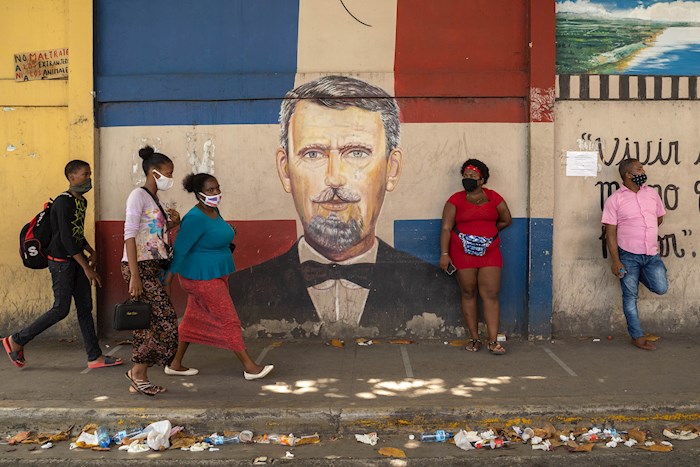 La
facción dominante de ese sistema supo diseñar y construir
anticipadamente los resultados plasmados en las urnas el pasado 19 de
mayo.....,Medio Oriente :: 06/06/2024
La
facción dominante de ese sistema supo diseñar y construir
anticipadamente los resultados plasmados en las urnas el pasado 19 de
mayo.....,Medio Oriente :: 06/06/2024 Barghouti: "Sin sanciones y embargo de armas no se podrán detener las atrocidades de Israel" X Olga Rodríguez
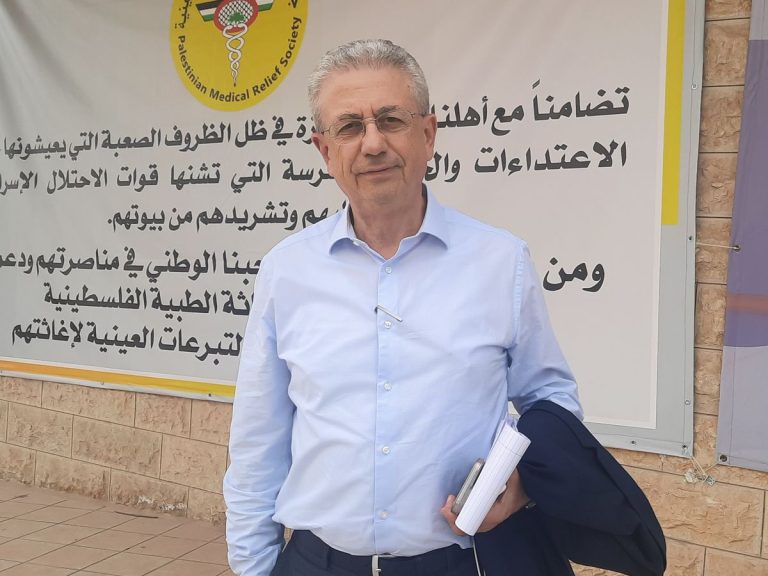 Entrevista
con Mustafa Barghouti, diputado, secretario general y cofundador del
partido Iniciativa Nacional Palestina con Haidar Abdel-Shafi y el
escritor Edward Said....,Andalucía :: 06/06/2024.
Entrevista
con Mustafa Barghouti, diputado, secretario general y cofundador del
partido Iniciativa Nacional Palestina con Haidar Abdel-Shafi y el
escritor Edward Said....,Andalucía :: 06/06/2024. La necesidad de la abstención contra el euroimperialismo x Iñaki Gil de San Vicente - La Haine.
 El
Parlamento Europeo, al que quieren que votemos, es la fachada que
oculta la fábrica de muerte que están montando sobre una realidad social
empobrecida....,Europa :: 04/06/2024.
El
Parlamento Europeo, al que quieren que votemos, es la fachada que
oculta la fábrica de muerte que están montando sobre una realidad social
empobrecida....,Europa :: 04/06/2024. La IA, arma de guerra X Luca Pisapia.
 En
la guerra de la OTAN contra Rusia en Ucrania, Silicon Valley ha cobrado
un gran protagonismo. El espacio se perfila como una nueva etapa en la
escalada tecnológico-militar.......,Cuba.
En
la guerra de la OTAN contra Rusia en Ucrania, Silicon Valley ha cobrado
un gran protagonismo. El espacio se perfila como una nueva etapa en la
escalada tecnológico-militar.......,Cuba. Segunda Declaración de la Habana x Fidel Castro.
 Del
pueblo de Cuba a los pueblos de América y del mundo :: Discurso del 4
de febrero 4 de 1962 ante una Plaza abarrotada. Es la mayor
concentración popular desde que triunfó la Revolución....,:: Siguiente >>
Del
pueblo de Cuba a los pueblos de América y del mundo :: Discurso del 4
de febrero 4 de 1962 ante una Plaza abarrotada. Es la mayor
concentración popular desde que triunfó la Revolución....,:: Siguiente >>

- Papeles de la Dictadura
- Investigación
- Actualidad
- Columnas
- Cartas
- Nosotros
Actualidad 01-04-2024
SE INDAGA PRESUNTO ABULTAMIENTO DE $430 MILLONES EN LA TRANSACCIÓN
Caso Cesfam de Las Condes: tribunal autoriza levantamiento de secreto bancario de alcaldesa Peñaloza y otros siete involucrados
01-04-2024
La fiscalía solicitó información de las cuentas de la alcaldesa de Las Condes, Daniela Peñaloza (UDI), de cinco altos funcionarios de la municipalidad y de los dueños de Vulcon Asset Management. La empresa, de la que es socio el extenista Paul Capdeville, intermedió en la compra de terrenos para construir un consultorio. La justicia autorizó el levantamiento del secreto bancario. En el proceso se investiga por qué la municipalidad pagó el doble por una de las casas del paño donde se debía edificar el Cesfam, si Vulcon la había comprado un par de meses antes en la mitad del precio. Una investigación de CIPER publicada en abril de 2022, basada en los documentos notariales de la transacción y en los registros del Conservador de Bienes Raíces, indica que el eventual sobreprecio alcanzaría los $430 millones.
Investigación 27-03-2024SU FAMILIA POSEE UN PREDIO AVALUADO POR EL SII EN $30 MIL MILLONES QUE EL SENADOR NO HA TRANSPARENTADO
El desconocido negocio inmobiliario que reportó $4.200 millones a la familia del senador Fidel Espinoza y su nexo con constructora
Columnas 02-04-2024Un nuevo tipo de polarización
Actualidad 23-03-2024JEAN PIERRE MATUS, DE LA CORTE SUPREMA, Y ANTONIO ULLOA, DE LA CORTE DE APELACIONES DE SANTIAGO
Chats de Hermosilla: conversaciones del abogado revelan su influencia en nombramientos de ministros del Poder Judicial
Actualidad 22-03-2024GASTÓ $42 MILLONES PARA PAGAR MÉDICOS, COLEGIOS, VIAJES Y COMPRAS EN MULTITIENDAS
Fiscalía detecta que alcalde de Rancagua usaba tarjetas de débito de un proveedor de la municipalidad para sus gastos personales
Columnas 25-03-2024El tigre y el jaguar. Cómo se comparan las políticas culturales de Corea del Sur y de Chile
Actualidad 19-03-2024ABOGADO FUE ASESOR DEL MINISTERIO DEL INTERIOR Y REPRESENTANTE DE ESE GOBIERNO EN TRIBUNALES
Los $239 millones que los gobiernos de Piñera le pagaron a Hermosilla y a su estudio jurídico a través de boletas y convenios
Red Latina sin fronteras: Comunicaciones e información para la liberación
- Opinión
- Estado Español
- América Latina
- Internacional
- Barricada gráfica
- Agenda
- Hemeroteca
- ¿Quiénes somos?
- Contacto
- Publicar en Kaos

Comunicación. Programa de Resumen Latinoamericano en la TVP: Argentina /El Salvador / México / Palestina (video)
Resumen Latinoamericano, 3 de junio de 2024. En un nuevo programa de Resumen Latinoamericano por Televisión del Pueblo, hablamos de la corrupción en el ministerio...
Puerto Rico. Un frente amplio en defensa de nuestra Universidad
Por Luis Pedraza Leduc, Resumen Latinoamericano, 3 de junio de 2024. El 20 de enero de 1966 la legislatura de Puerto Rico aprobó la Ley...
Puerto Rico. Ley 60 (22), donativos políticos y elecciones
Resumen Latinoamericano, 3 de junio de 2024. Según circuló en estos días a través de la cuenta de «X» ( antes «Twitter») de una reconocida...























 Students
rally at Harvard University in Cambridge, Massachusetts, on July 1,
protesting a US Supreme Court's ruling on June 29 against race-based
affirmative action that was introduced to redress historical
discrimination in higher education. ZHU ZIYU/XINHUA
Students
rally at Harvard University in Cambridge, Massachusetts, on July 1,
protesting a US Supreme Court's ruling on June 29 against race-based
affirmative action that was introduced to redress historical
discrimination in higher education. ZHU ZIYU/XINHUA People
attend a candlelit vigil for victims of a shooting at a Kansas City
Chiefs Super Bowl victory rally in Kansas City, Missouri, on Feb 15. A
woman was killed and more than 20 people were injured in the shooting.
CHARLIE RIEDEL/AP
People
attend a candlelit vigil for victims of a shooting at a Kansas City
Chiefs Super Bowl victory rally in Kansas City, Missouri, on Feb 15. A
woman was killed and more than 20 people were injured in the shooting.
CHARLIE RIEDEL/AP











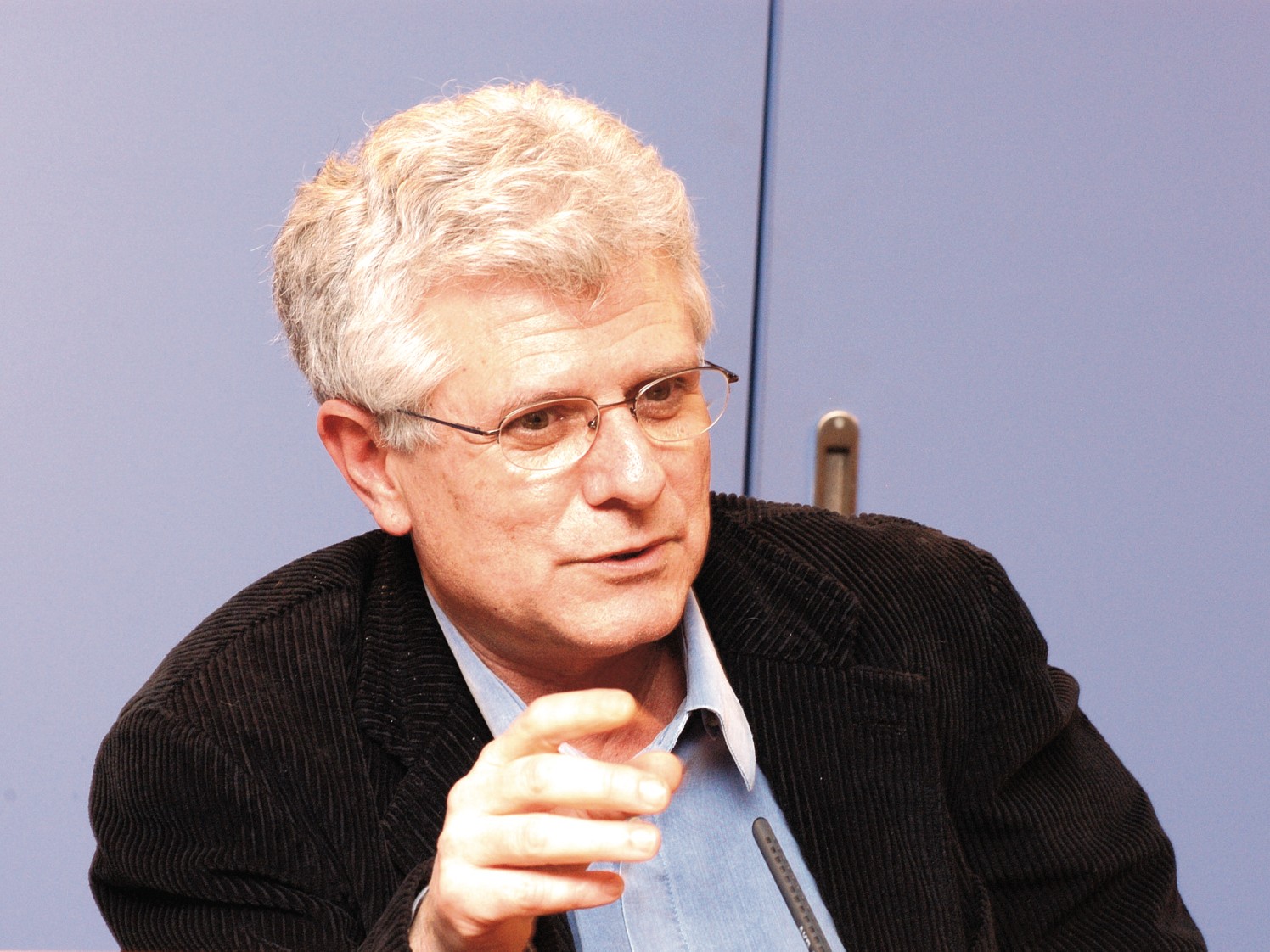








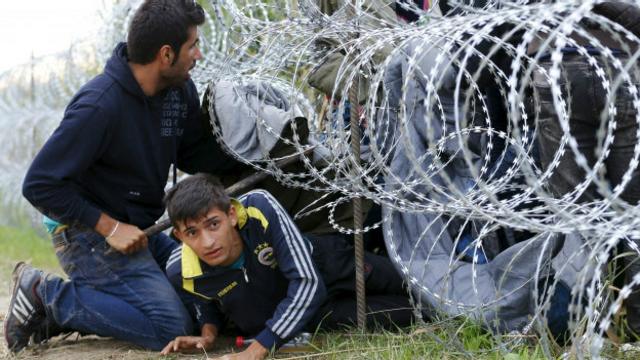
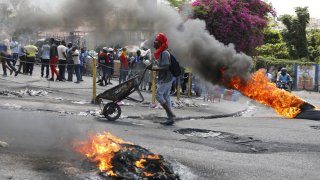





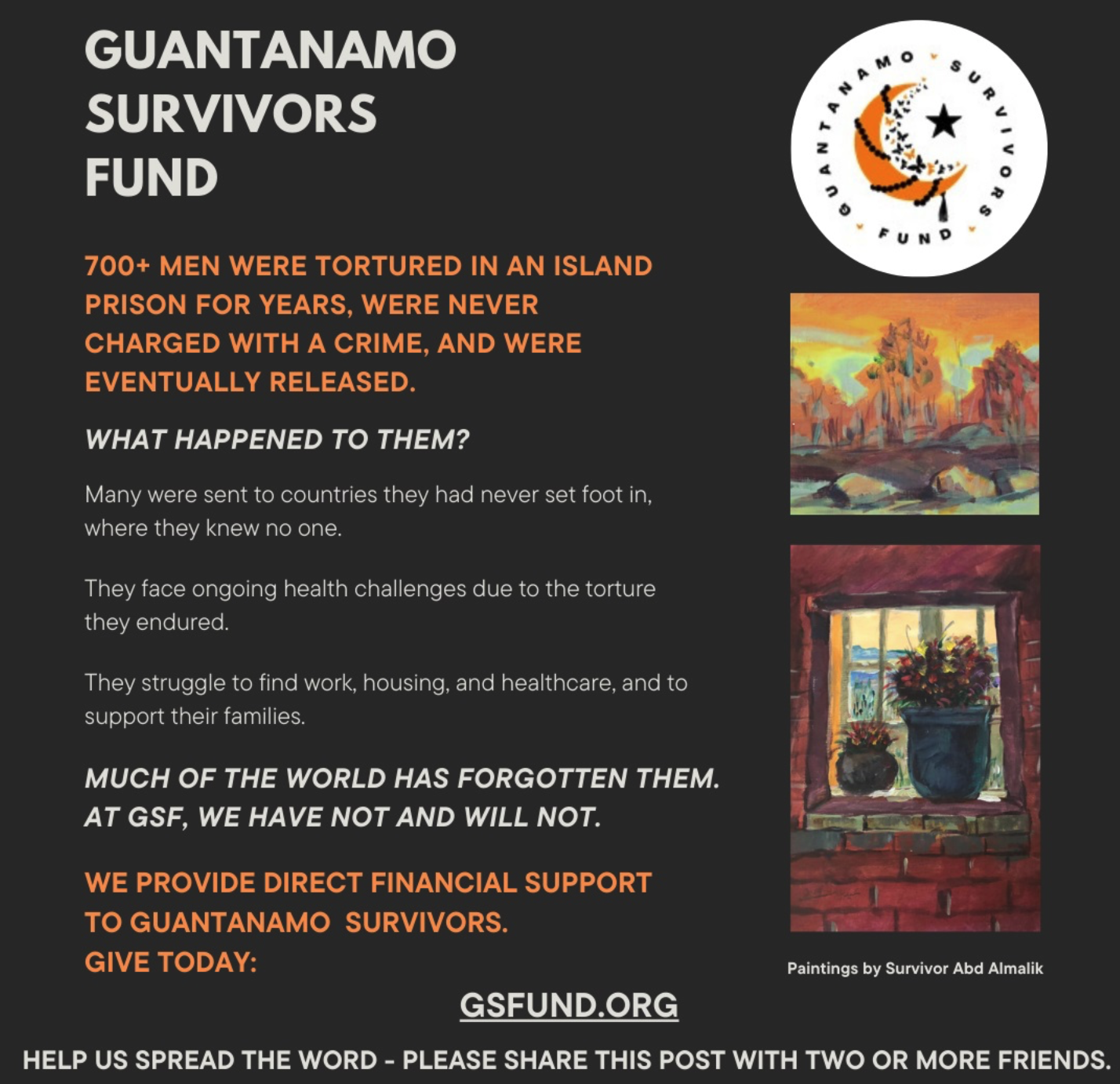
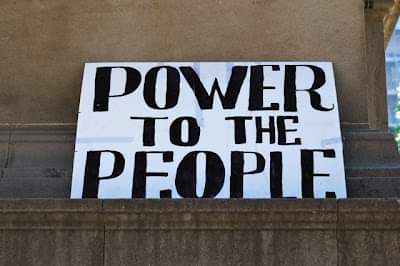
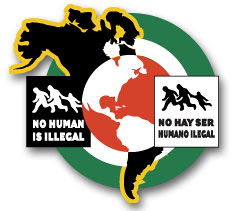

.jpg)







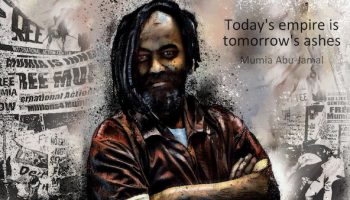


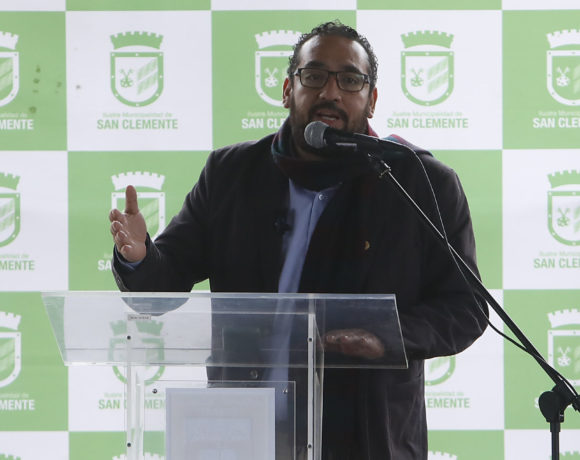




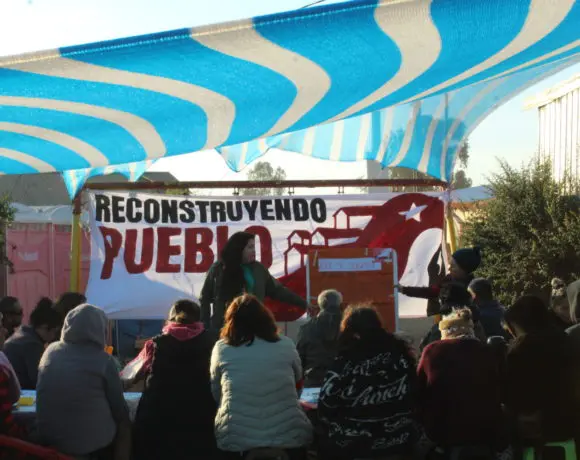

















You must be logged in to post a comment Login